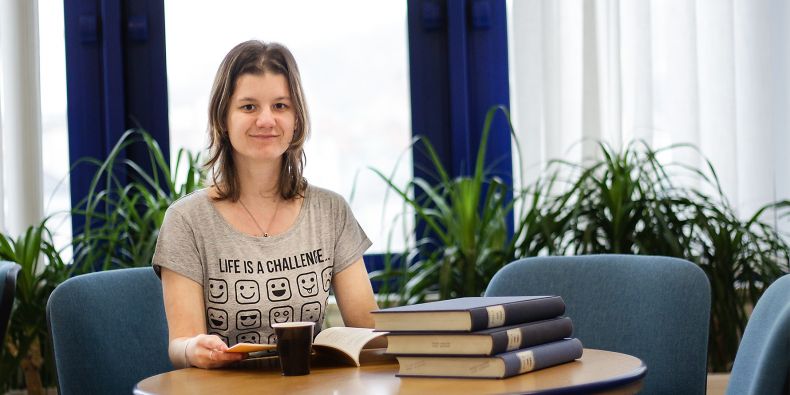Žaneta Petraturová has been deaf since birth. Coming to university was a life-changer for her. Although her early days at the Faculty of Education were hard, she was helped by her classmates and the Teiresias Centre. Unlike some students with disabilities, Žaneta has not given up: she has completed the first round of state examinations and dreams of a career as a teacher at a school for hearing-impaired children.
Twenty-nine-year-old Žaneta draws on her disability for her hobby. In her free time she transcribes sign language and organizes lectures for the deaf community. At university she studies English and Special Education. She is interested in surdopaedia and psychopaedia, which address the education of the hearing impaired and mentally disabled.
“I study alongside hearing students," Žaneta tells me, as we chat online. “My early days at university were more difficult than I thought they would be. My level of English is lower than that of my classmates, so I've had to battle with this from the beginning."
Žaneta gets help with her studies from the Teiresias Centre, which provides a service to students with disabilities. During lectures, seminars and exams she makes use of an interpreter and a note-taker. Unlike her hearing classmates, she can extend the time it takes her to complete an exam, a credit course, or even her studies as a whole.
Now Žaneta works at Teiresias on the transcription of sign language. “These days it's often called Signed Czech, which most people don't realize," she explains. In Žaneta's opinion it is impossible to create signing in written form, hence the use of various systems of notation to create records of sign languages.
Žaneta's dream is to become a teacher of English and Sign Language at a school for the deaf. “Most hearing people think that sign language is universal, but it's not," she says. “It's a full-fledged language used by the hearing impaired of a given country. As with spoken languages, each state has its own. Which means an Englishman and a Czech won't necessarily understand each other."
Although Žaneta occasionally comes across people who lack sympathy for and awareness of disability, she believes that things are improving. “Often those who behave badly towards people with disabilities know nothing about them," she explains. “Some get irritated when I write a request or a question on a piece of paper. People who know something about the deaf treat them with more respect and understanding."
As hearing people become better informed, Žaneta believes, they will make more effort to learn sign language and understand the deaf community and what it has to face every day.
